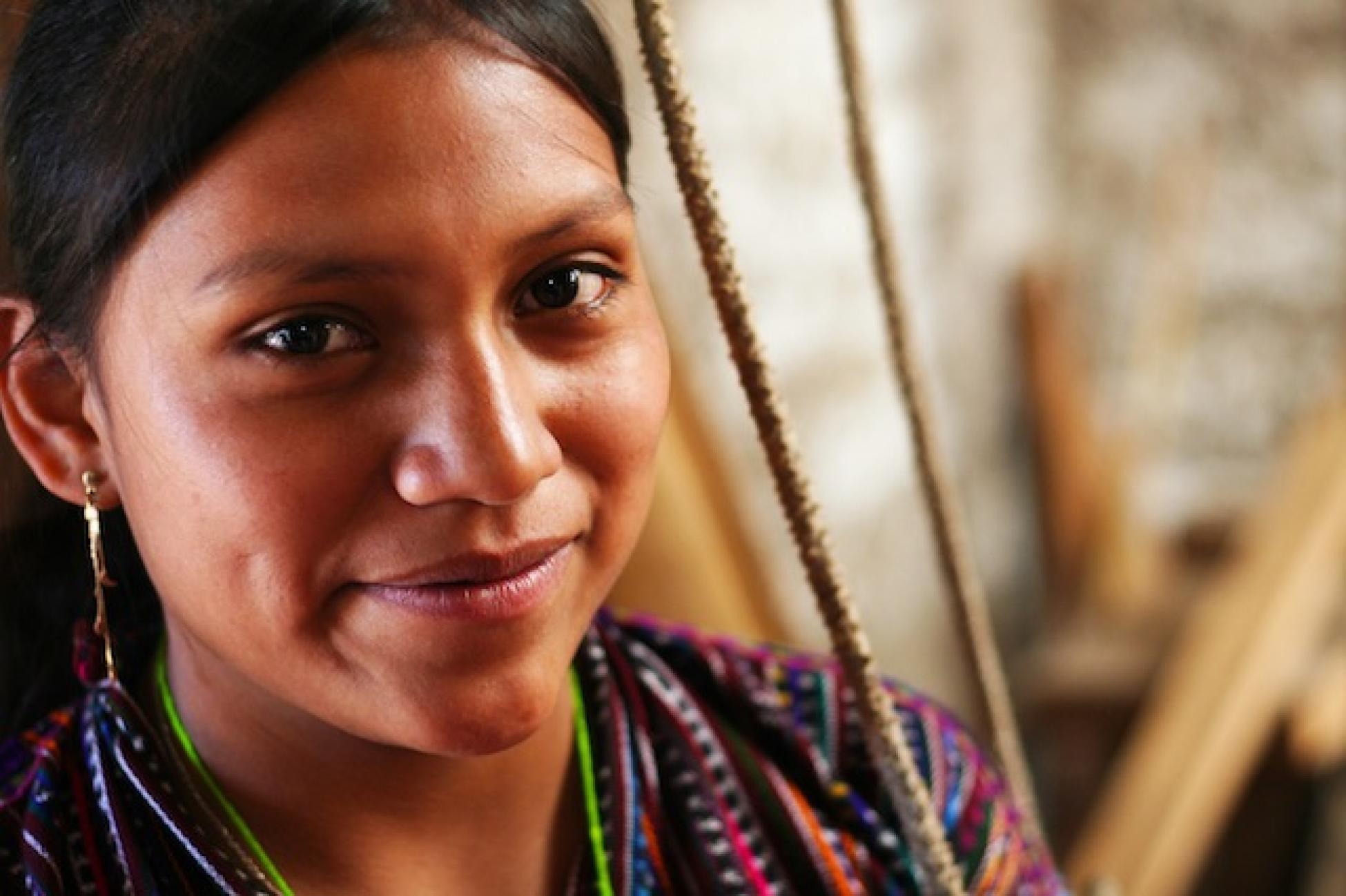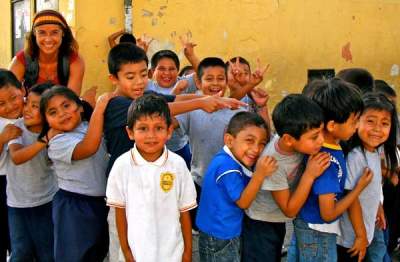She doesn’t look anything like me.
Her hair is glossy and black, mine is flat and brown. My clothes cling tight to my curves. Hers hang loose. Her skin is golden, mine is burnt. I am tall, she is short. Her eyes hang low, mine press high. Her voice is sweet and soft, mine is crude and loud.
There is so little ground to claim between these worlds and yet here we are, steadfast in a struggle to find it. What is adventure, after all, if not the pushing of boundaries and comforts redefined?
I am deep in the middle of one said adventure. As the Director of Communications and Development for Reading Village—a scholarship, leadership, and literacy organization in Guatemala—I’ve been tasked with helping to show some of our most loyal supporters the indigenous communities in which they’ve invested.
The idea is simple: perhaps with bellies full of tortillas and skin burnt by the Central American sun, we might begin to understand the capacity for literacy to interrupt generational poverty. We might find greater reason to care.
Around the world, experiential philanthropy is becoming increasingly available to individuals who want a better understanding of the social change in which they are investing. You can drill a well in Ethiopia, build a school in Nepal, rock orphans to sleep in Eastern Europe or read with school kids in Guatemala. The trips look different, but the goal is generally the same; inspire investors through hands-on experience.
It’s four days in and three days to go when I find myself sitting beside Carmen, a Mayan teenager in her third year of the organization’s scholarship, leadership, and literacy program. Carmen is an indigenous Mayan born into a farming community in rural Guatemala. When she was six years old and her mother was sick she learned to wake early and work hard. Up before the sun she raises her siblings, maintains a home, and finishes her education. She is humble and inspiring and I sit in awe of her strength, resiliency, and the understated way with which she relays her life’s endurances.
The divide between our lives is vast, but we are searching for common ground. We share a lunch of sweet limonada and fresh tortillas, laugh at one another’s girlishly awkward dance moves and practice one another’s languages.
"Sueño," she says.
"Dream," I say as I spell the letters across the palm of my hand.
It is only after you’ve walked alongside these youth, looked them in the eye and heard about their dreams that one can really comprehend just how high the stakes are. The statistics that we read about—the one in 10 youth who fail to reach high school in rural Guatemala or the 21 per cent of the population living on less than 1USD per day—are no longer abstract numbers. They are Carmen’s younger brother who has never had the chance to school. A young boy being taught to read by his sisters under the glow of a single bulb in a sooty room. And it is Carmen and her peers, the exceptions to a pervasive and oppressive norm. Indigenous youth who are finishing their educations and achieving professional employment, who are building a culture of literacy where before there were not even books.
Carmen’s black hair falls down the length of her back. We’re sitting side-by-side on a small wall outside a beautiful library built by her and her peers. Her brilliantly handwoven huipil brushes against the shoulder of my cheaply manufactured t-shirt.
“My dream,” she says, “is to build an organization that works with children like my brother, supports them to learn to read and write so that they can stay in school. I want them to learn the same cultural traditions that my mother passed on to me. I want to create a better life for these children. That is my goal. That is my dream.”
For the first time in a week this sunburnt, gangly gringa is left speechless. My eyes drop in humility. Her head is raised in pride. Our toes, I notice, are covered in the same black dirt.
“That’s a good dream,” I whisper. “Un sueño bueno,”
Wouldn’t you know that the ground we find to walk forward on is that shared by young women everywhere—a desire to care for those around us, to lift up our communities, to find meaning for our lives and purpose for our days. There is empathy and inspiration shared despite not speaking one another’s languages.
We take another sip of limonada and dream on.
About the writer: Kassia Binkowski is the Founder and Creative Director of One Thousand Design, as well as the Director of Communications and Development for Reading Village. Through writing, photography, videography and design Kassia supports social impact organizations from Colorado to Kathmandu tell their stories and create a better world.




